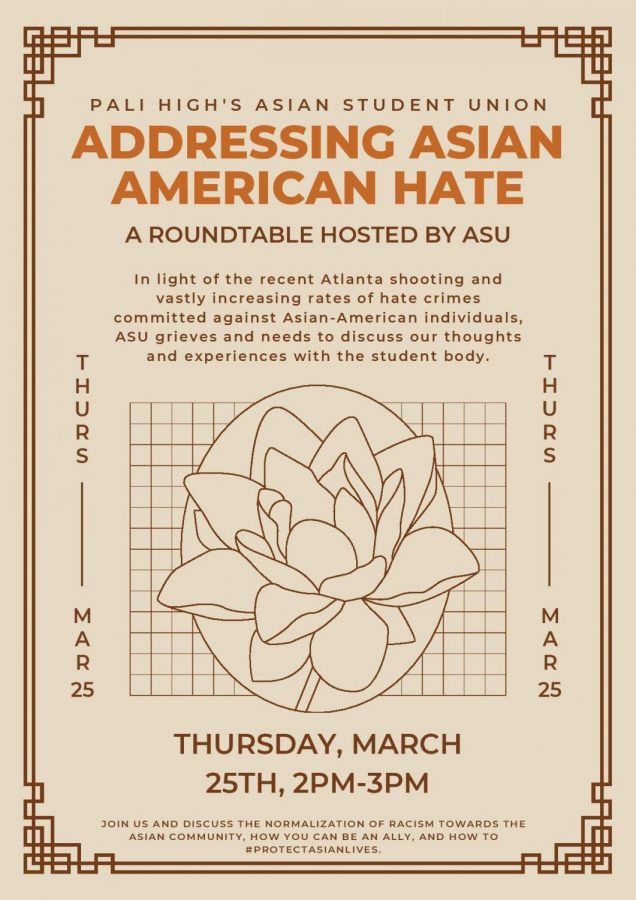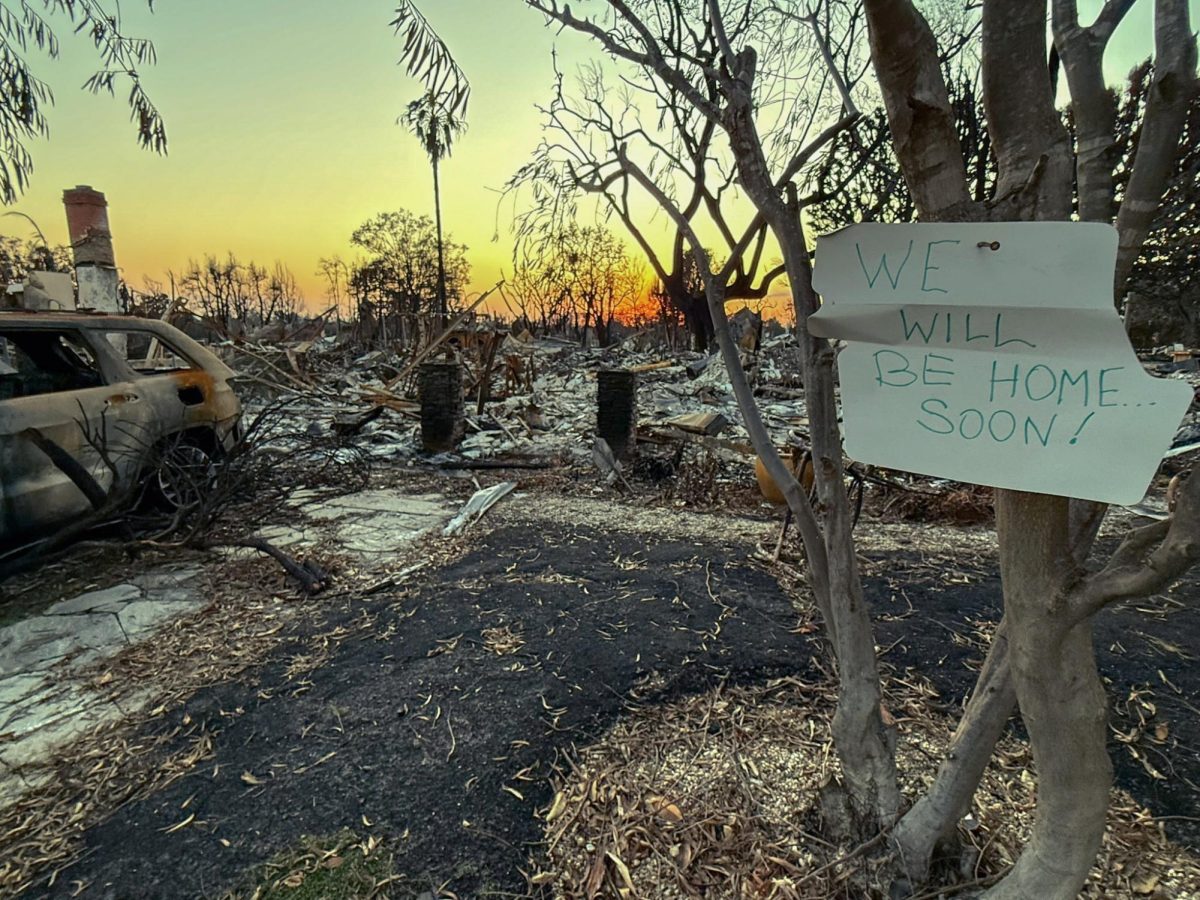ASU Hosts Roundtable to Raise Awareness of anti-Asian Hate Crimes
April 27, 2021
In light of the recent increase in anti-Asian hate crimes, Pali’s Asian student union (ASU) hosted a schoolwide roundtable discussion on March 25 centered around the normalization of racism toward the Asian American and Pacific Islander (AAPI) community and how students can be allies for the AAPI community.
“We felt like it was really important to talk about,” co-president Lauren Zaidel said. “What mostly sparked this particular discussion was the Atlanta spa shooting, where eight people were killed and six of them were Asian women.”
The Atlanta spa shooting gained significant media attention and provoked outrage from people all across the country. ASU discussed this event extensively.
“Our meetings usually last half an hour, and we went over an hour with this discussion,” Zaidel said. “We thought that this was a good opportunity for Pali students to learn more about what is going on with our community and be more aware.”
After their club meeting, the cabinet met and decided that they wanted to initiate a schoolwide roundtable discussion about the event.
ASU officers reached out to administrators, teachers and the Associated Student Body. Some history teachers offered extra credit if their students attended the roundtable.
According to Zaidel, they invited a former ASU president Hannah Yick (class of 2019) to speak about her experiences as an Asian student at the University of California, San Diego.
Approximately 70 people attended the roundtable, however, Zaidel believes that the turnout could have been better in person. More than 300 students attended ASU’s last event which took place in Mercer Hall in December of 2019.
“People don’t want to hop on another Zoom meeting right after class,” co-president Sarah Kageyama added. “But for being online, and being during a pandemic, it was definitely successful.”
At the roundtable, while ASU members led the discussion, the majority of attendees were not members of the club, and at least 30 people shared their ideas.
Topics ranged from the portrayal of Asian American women as sexual objects in the media to the model minority myth to the casual use of slurs against Asians. One thing that stood out, however, was the resounding fear among Asian contributors that their grandparents or parents would be next.
“When you go on social media, you see all of these videos of Asian elders getting shoved out of nowhere, or getting punched in the face, or being called slurs,” one contributor said. “It scares me a lot. It’s really scary to think that that could be someone that I love. It could be someone that one of my friends loves. And most importantly, it’s another human.”
The discussion lasted longer than the designated time, with students staying on Zoom to share their thoughts for an hour and a half. As the time wound down, the ASU cabinet closed the discussion by encouraging students to stay updated on the happenings in the AAPI community.
“If you are not yet involved in activism, one of the most important things to do is to stay up to date on the news,” Zaidel said. “See what is going on, and act on it as if it were your grandparent who had been beaten on the street.” She paused and added, “I feel like that urges action.”
This event aligned with ASU’s stated mission to provide a safe space for Asian students at Pali and bring attention to the issues that Asian-Americans face. The club holds weekly meetings on Wednesdays and hosts other events dedicated to appreciating the vast diversity of the Asian American community.
“We [do] a lot of cultural projects,” Kageyama said. “For Diwali, we did chalk painting outside of Ms. Kim’s room, and we learned about different foods. We did stuff to celebrate Lunar New Year, which was both educational and a good way for us to connect and share our own cultures.”
“We focus a lot on solidarity,” Zaidel added. “We make up 8.5 percent of the student body as of 2018, which is super small. There are so few of us on campus that a lot of times we feel like our culture isn’t quite included in the discussions of minority culture and what goes on on campus, so I feel like we needed to bring a solid voice to the Asian experience and the Asian perspective.”
Zaidel and club members started this dialogue in hopes of encouraging others to recognize the microaggressions and racist comments that perpetuate the normalization of racism in society.
“Even making a small change where you call your friends out for things that seem like they have a tinge of racism can make all the difference,” Zaidel said, “because that’s dismantling the harmful stereotypes that the Asian community faces.”












